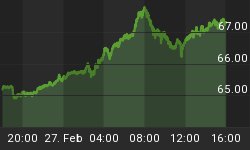INCIDENT: Sources in the Gulf region report that Iran is preparing for a possible attack by Israel and/or the United States on one or more of its nuclear production units by stockpiling arms and munitions with its proxy militias in Kuwait and Bahrain. This comes as Bahrain arrests 23 opposition leaders accused of terrorism offences and hints that Iran is behind an alleged plot to overthrow the government.
SIGNIFICANCE: Bahrain's attempted coup reports should be taken seriously, as Iran knows that its best chance of fighting the US and/or Israel is by proxy. Hitting Bahrain hard would greatly upset the overall security situation in the Middle East and Gulf region.
BACKGROUND ANALYSIS: Earlier this month, the tiny Kingdom of Bahrain announced the arrest of 23 men whom it accused of wanting to commit acts of terrorism and plotting to overthrow the government. Bahrain may well be the smallest of Arab countries yet it contributes greatly to the overall security of the Gulf region and the Middle East. Among other things Bahrain serves as the regional headquarters to the US Navy fleet operating in the Persian Gulf. Strategically located at about halfway up the important sea lanes in the Gulf and through which most of the world's oil is carried from extraction sites to refineries aboard super tankers, the island nation of Bahrain is linked to the Saudi Arabian mainland by a 15-mile (24 km) causeway over the azure waters of the Persian Gulf. The causeway takes one into Saudi Arabia's Eastern Province, where the largest Saudi oil fields are located.
Saudi's Eastern Province is largely Shiite. Bahrain's population of 729,000 is composed of 70% of Shiites and the rest are Sunni. The Sunnis hold all the top positions of power in the country, from the king on down to every major office. The Shiites, who generally feel they are treated as second-rate citizens, relate to their coreligionists in the nearby Islamic Republic. Iran periodically likes to remind the Bahrainis that their island used to belong to Iran and that the Iranians have not forgotten that. This is a part of the world where tensions run high and conflicts can easily ignite, particularly given that all the ingredients for an explosive situation are present: oil, religion and politics.
BOTTOM LINE:
Sounding the Alarm in Bahrain: The events that unfolded in recent days in Bahrain could represent a very real and present danger to the security of the region. The men arrested in Bahrain were said to be working for "outside forces", the term usually meant to indicate Iran. Pointing the finger directly at the Islamic Republic can prove to be a dangerous gamble. Yet that language remains clear. The report of an attempted coup in Bahrain is something that must be taken very seriously and should send alarm sirens wailing all the way from Manama, the capital of the tiny kingdom to the corridors of power in Washington.
Iran's Choices: Tehran realizes two very important facts in case of attack against its nuclear facilities. First is that if attacked by Israel and/or the United States it will be incapable of striking back directly seeing the US' domination of the skies and Israel's quasi-impregnable air defense system (with US contribution). And second, Iran also knows that it must retaliate at all costs or lose all credibility. The solution? Fight them (the US and/or Israel) by proxy. And hit them hard. And make it hurt.
How do they go about this? Hezbollah, the Lebanese Shiite paramilitary movement, is in a perfect position to hit Israeli towns and cities from the north and could target large centers of population as far south as Hadera and possible further. Hezbollah's arsenal includes long-range field artillery and Iranian-supplied medium-range rockets. From the south, Hamas, the Palestinian Islamic Resistance Movement, can target Israeli locations, including the suburbs of Tel Aviv. Hamas' artillery is more crude and their Qasam rockets are home made and inaccurate, though they can still cause damage and casualties.
In the Gulf, Iran supports, arms, and trains Kuwait's very own Hezbollah, who in turn is believed to have been supplying training and weapons to the Bahraini Shiites, such as the 23 men who were recently arrested in Bahrain. And, of course, one must not forget the influence Tehran carries in Iraq, where the US still has some 50,000 troops deployed and where Iranian-backed militias would very likely go on a shooting spree.
How seriously should one take the accusations? Iran has periodically reminded Bahrain that the island is/was part of Iran. And if attacked by Israel and/or the US, Iran might decide to push the envelope - especially if they feel they have popular support on the island.
By. Global Intelligence Report Staff
For Breaking Geopolitical Intelligence, economic forecasting, trends and World News visit the Global Intelligence Report.















